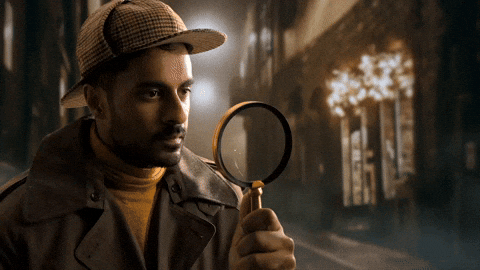
The best way to prepare for an upcoming job interview is to get yourself familiar with the types of questions you might get asked. That way, you’re ready to deliver a carefully prepared ‘out of the box’ answer instead of presenting your potential employer with a nervous stare and a sub-par response.
It's always important to consider what a hiring manager might actually be looking for when they ask a question. For example, the old classic “so, what are your biggest weaknesses?”. The trickery. Do they really want to know about the fact that you’d rather cover yourself in jam and sit on a wasp nest than look at data? Or do they want one of those I’ll-call-it-a-weakness-but-its-not-really-a-weakness answers like “I’m a bit of a perfectionist!”.
We’ve put together a ‘how to’ style blog on the 5 most commonly asked interview questions and our hints, tips, and advice on how to feel comfortable giving some really impressive, natural responses.
Consider this your Classic 5 Interview Questions Guide!
How to answer: "Tell us a little bit about yourself?"
This question tends to catch people out – it may seem like an obvious question to ask a candidate, but it’s often overlooked when it comes to preparing for interviews and can result in a long-winded, waffly answer loaded with too much personal information.
Strangely, the correct answer wouldn’t reveal that much about you personally – like where you grew up or the name of your first pet, but rather your candidacy. The hiring manager isn’t asking about what your favourite holiday destination is, they’re trying to establish whether your personality is a good fit for the company, or the team you’d be working with. Crafty, hey?

If you get hit with this question straight away, remember the following points:
- Don’t recite your CV – they already know this information
- Don’t overload on personal information – most of the time it isn’t relevant
- Do tailor your answer to highlight the skills and abilities you have that the company may desire
- Do demonstrate that you’re happy to talk confidently and, if there’s more than one interviewer, address everyone while you’re talking
- Do keep it short and sweet
- Do refer to previous job roles and responsibilities, for example “In my last role, I was responsible for a large team which I really enjoyed"
- Do use your knowledge of the company to influence your answers. For example, if they are super hot on CSR, demonstrate some charitable work or personal values that align to this
How to answer: "Why should we hire you?"
Similar questions include: “What makes you a good fit for this role?” / “Why are you the best person for this job?”, and “What can you bring to the company?”
First things first – do not be intimidated. You’ve actually been given the golden egg of interview questions!
What better way to pitch yourself than to explain exactly why they should hire you, why you’re a good fit, and exactly what you can bring to the company? You don’t have to worry about whether you demonstrated this throughout the entire interview – you can quite literally spell it out.
If you’ve spent time understanding the company and the job role they need you to fill, all you have to do is collate examples of past responsibilities that make you an experienced candidate, and explain how well you delivered on them.
When preparing your answer to this question:
- Do spend time connecting your skills and experiences to the requirements of the role
- Do read up on the company and, if you can, understand their objectives – make sure to demonstrate the fact that you have invested time, and are interested in, finding out about the company
- Do highlight the qualifications you already have that will assist you in your role and potentially save the company the cost of training
- Do give real life examples of how you’ve added value in similar roles in the past
- Do demonstrate your personal motives and values that are well aligned to the company’s
- Do explain which parts of the role and the position excite you the most
- Don’t say that you want the role because of the salary (honestly, we’ve heard this one!)
- Don’t assume that you have more experience or better qualifications than other candidates, after all – you don’t know them
- Do be enthusiastic – let the hiring manager know just how happy you’d be for the opportunity to work for them!
How to answer: "What are your greatest strengths?" and "what are your biggest weaknesses?"
Ooooh these two. The Bonnie and Clyde of interview questions. We all hope they will stay hidden away at the back of the drawer where they belong, but trust us – they don’t. They remain two of the most commonly asked interview questions.

Absolutely, yes! Your interviewer will be trying to identify the soft skills you have that will compliment the position, how honest and how self-aware you are. You will need to have read the job description thoroughly to prepare for these questions though – and focus on 2 or 3 strengths or weaknesses you can talk about.
So lets start with strengths:
- Do tell a story about how you've used those strengths in the past
- Do demonstrate how your strengths can benefit the company
- Do consider what might set you apart from the other candidates when answering this.
- Don’t be too generic
- Don’t fall into the trap of bragging, and be careful that you don’t come across as arrogant – it’s a delicate balance
- Don’t go off piste, keep those answers as relevant to the role as possible
Now, choosing the right weaknesses to lay bare in front of the people you’re hoping will give you a job is a daunting task, but these tips will help you answer the question successfully:
- Demonstrate your self-awareness by giving an honest answer that would not affect your ability to do the job. For example: if you are applying for a creative content role, you could say that you sometimes struggle with data, but you understand the benefit of understanding it in order to write engaging content, so it's something you're working on.
- Avoid text book answers to this one, such as “I’m a perfectionist!” and “I’m a workaholic – you’ll never kick me out before 5pm”
- Strike the balance – you need to be honest enough, while also making sure you don’t put off your potential employer
- A little humour won’t always go amiss, so if you’ve built good rapport and you feel confident to crack a little funny – why not tell them that honestly, you are a really terrible cook
How to answer: "Where do you see yourself 3 years from now?"
This question actually means: “Is this role the next logical step in your career path? Do you see a future with our company? Are you actually going to stick around? Are you just applying because you need a job?”
This is where you need to show that you’re committed to the company, and that your goals are aligned with what the company can offer you. You’re in it for the long haul, and you’re going to do wonderful things together.

- Do steer clear of specific timeframes. For example, If transitioning into management is one of your goals, simply answer with, “I see the next step for me being a managerial role” instead of “I’d like to be in a managerial role in the next 12 months”
- Do show that you have set yourself goals that you will be working towards over the next 3 years, it shows that you’re willing to push yourself
- Don’t be unrealistic. If you’re just starting out in your career, and you answer this question with “I see myself heading up a department” it might not come across as ambitious - perhaps more naïve, or worse - arrogant
- Do use this to timestamp how much experience you’ll have at that point, for example: “In 3 years I’ll have 8 years’ experience behind me, so it might be the right time to consider leading a team”
- Do talk about what you hope to achieve for the company within the 3 years
Don't forget...
Being yourself in an interview is much more important than having the perfect answers (although of course - it does help!). Authenticity is a rare quality and something that most businesses and hiring managers will value greatly. Even if you believe you aren’t as qualified as your fellow candidates, you can demonstrate your willingness to further your learning in order to succeed in this potential position.
And secondly, don’t worry. Enjoy the experience. Some of our best candidates thought they had terrible interviews on paper – but made such a good impression and built such a rapport that they were invited back again, and some even got the job!



